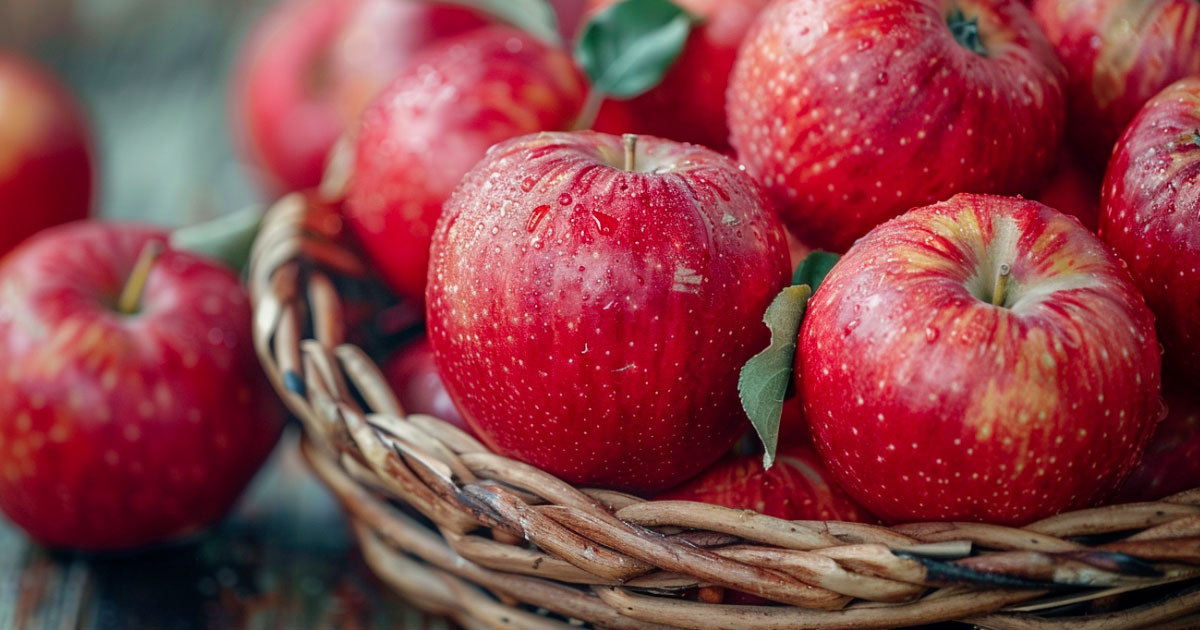
Biting into a juicy, red delicious apple is a simple American pleasure that also happens to be one of the healthiest dietary choices. Everyone knows apples are healthy, but some people slice away the best part for fear of dirt or pesticide residues: the apple peel. While a peeled apple and its juices do still have plenty of nutritional value, discarding the skin means you’ll miss out on some important phytonutrients not present in just the flesh. Moreover, even the seeds and stems can be useful and, along with the skin and flesh, provide a number of health benefits.
The juicy flesh of an apple contains most of the nutritional content and the fruit’s signature taste and texture. And while the flesh does contain soluble fiber content that can aid with digestion and even lower blood cholesterol, the peel is the site of most of the insoluble fiber; this type of fiber helps keep the bowels hydrated and provides bulk for the smooth passage of stool. Apple peels also contain a type of soluble fiber called pectin, a kind of starch that acts as a gelling agent and is believed to be beneficial for health.
Apple skins are also rich in antioxidants in the form of polyphenols, flavonoids like quercetin, and vitamin C. These compounds are important because they have the ability to neutralize free radicals, the naturally occurring particles that are believed to trigger oxidative stress. Oxidative stress is believed to be one of the factors behind chronic inflammation and chronic diseases like type 2 diabetes and cardiovascular disease. Simply put, the skin of an apple is one of the most nutritionally valuable parts of the apple.
Both fresh apples and the products derived from them are good for your health for a number of reasons. One of the most important reasons is that apples are loaded with many of the essential nutrients our bodies need on a regular basis. An average apple has around 80 calories, 20 grams of carbohydrates (fructose and glucose), trace amounts of fat, and 3-4 grams of dietary fiber. Apples also have a variety of nutrients:
Vitamins (% Daily Value)
Minerals (% Daily Value)
One of the reasons apples are so popular is how versatile they are; from beverages like apple juice and apple cider to baked goods and savory dishes, apples can add unique flavor and texture. Yet apples are also a great way to incorporate valuable nutrients that are associated with a wide range of health benefits:
Although juices and concentrates are part of the core of what we do at FruitSmart, apples offer much more through upcycling. Upcycling refers to the practice of repurposing or transforming the byproducts of fruits that would otherwise be discarded. In the case of apples, we provide powders, fibers, and other dried pieces that are derived from the pomace that remains after the juice is extracted. These dry ingredients can be used, for example, to add fiber or extra nutritional value to cereals, granola bars, and various baking applications.
At FruitSmart, we are dedicated to providing only the best juices, concentrates, essences, purees, and dry ingredients. It all starts with developing good relationships with the best growers in the world, and the result is an end product that is worthy of your brand and that will delight your customers. If you’d like to learn more about how to partner with FruitSmart, please contact us today.
